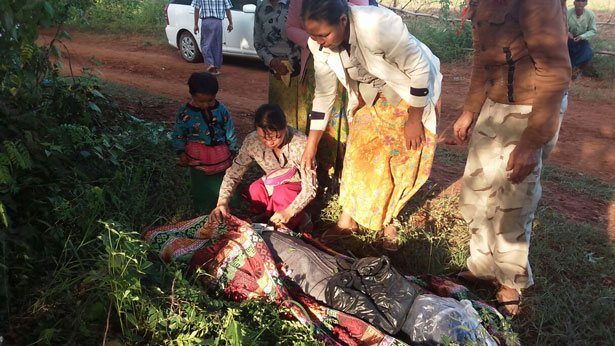Campaigners demanding the return of land to villagers in northern Burma said their fight would go on, days after an activist was beaten to death by a mob while visiting the disputed territory on the invitation of local officials.
Htay Aung was attacked by a mob of more than 20 people in northern Shan State. He died of his injuries on 1 November.
A police investigation is ongoing.
“We were waiting for the officials, when about 20 villagers [of the disputed village] approached and started shouting and swearing at Htay Aung,” said a man who was with him on the day.
“They beat him with bamboo sticks and sugarcane stems. We shouted at them to stop, but it was too late,” said the man, who asked not to be identified because he fears for his safety.
Local officials took Htay Aung to a local hospital, from where he was moved to Mandalay Hospital, where he died, the man told the Thomson Reuters Foundation through a translator.
Calls and messages to the police and government officials seeking comment were not returned.
About 70 percent of Burma’s population lives in rural areas and depends on agriculture for a living. Few have formal titles for their land.
Disputes over land have increased significantly since Burma eased political and economic restrictions after 2011, which led to a rush of foreign investments and greater demand for land for industrial use.
Government officials say these projects, including mining, hydropower and large-scale agriculture, are essential for development in one of the world’s poorest countries.
In 2012, Burma introduced new laws that permitted farmers to obtain land-use certificates aimed at according them greater security. Four years later, the country adopted a national land-use policy and introduced dispute resolution mechanisms.
Still, land deals are often marred by a lack of consultation, inadequate compensation, the absence of a resettlement policy and a lack of judicial remedies.
Alongside, arrests and prosecution of protesters and land activists have risen.
[related]
“The laws don’t protect the small farmer, and they don’t adhere to international human rights guidelines,” said Jennifer Horan, a researcher with Amsterdam-based advocacy group Transnational Institute, which focuses on land issues.
Campaigners said government officials have said they are considering amendments to one of the laws.
But activists say the proposed amendments will further undermine the rights of ethnic communities and women, and make it harder to resolve disputes.
Htay Aung’s fight will go on, despite his death, said the villager. “We will keep demanding our land back,” he said.



